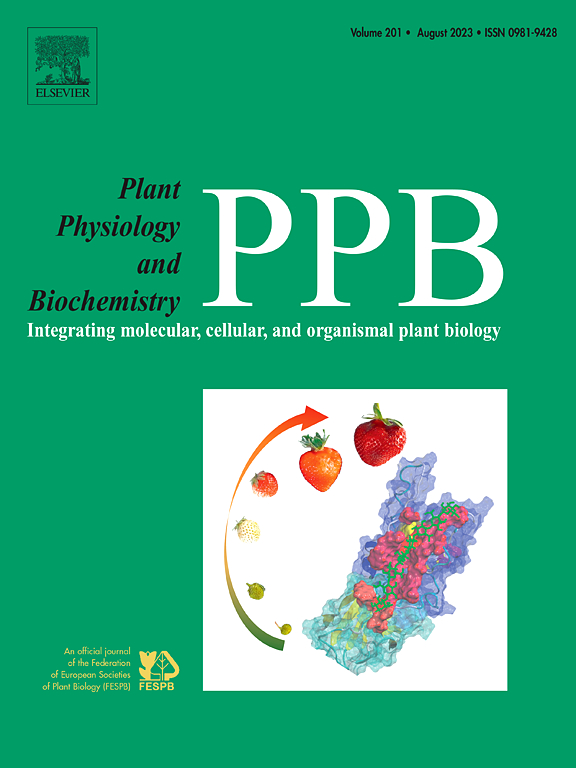The 1R-MYB transcription factor SlMYB1L modulates drought tolerance via an ABA-dependent pathway in tomato
IF 6.1
2区 生物学
Q1 PLANT SCIENCES
引用次数: 0
Abstract
The MYB transcription factor family is one of the biggest transcription factors in plants, playing key roles in regulating many biological processes, including growth and development, responses to biotic and abiotic stresses and hormone signaling. In this study, we identified and characterized an 1R-MYB transcription factor, SlMYB1L, which is involved in regulating drought tolerance in tomato. SlMYB1L-RNAi transgenic plants displayed more severe dehydration phenotype with elevated malondiadehyde (MDA) and hydrogen peroxide (H2O2), as well as reduced proline content and antioxidant enzyme activities compared to wild-type under drought stress. Additionally, SlMYB1L influenced drought-induced stomatal closure and modulated endogenous ABA levels, leading to a decrease in the expression of ABA-related genes in SlMYB1L-RNAi transgenic plants. A dual-luciferase reporter assay further confirmed that SlMYB1L represses the expression of ABA catabolism gene SlCYP707A3. In conclusion, our findings suggest that SlMYB1L is a stress-responsive transcription factor that positively regulates drought tolerance and may serve as a candidate gene for developing drought-resistant crops.
求助全文
约1分钟内获得全文
求助全文
来源期刊
CiteScore
11.10
自引率
3.10%
发文量
410
审稿时长
33 days
期刊介绍:
Plant Physiology and Biochemistry publishes original theoretical, experimental and technical contributions in the various fields of plant physiology (biochemistry, physiology, structure, genetics, plant-microbe interactions, etc.) at diverse levels of integration (molecular, subcellular, cellular, organ, whole plant, environmental). Opinions expressed in the journal are the sole responsibility of the authors and publication does not imply the editors'' agreement.
Manuscripts describing molecular-genetic and/or gene expression data that are not integrated with biochemical analysis and/or actual measurements of plant physiological processes are not suitable for PPB. Also "Omics" studies (transcriptomics, proteomics, metabolomics, etc.) reporting descriptive analysis without an element of functional validation assays, will not be considered. Similarly, applied agronomic or phytochemical studies that generate no new, fundamental insights in plant physiological and/or biochemical processes are not suitable for publication in PPB.
Plant Physiology and Biochemistry publishes several types of articles: Reviews, Papers and Short Papers. Articles for Reviews are either invited by the editor or proposed by the authors for the editor''s prior agreement. Reviews should not exceed 40 typewritten pages and Short Papers no more than approximately 8 typewritten pages. The fundamental character of Plant Physiology and Biochemistry remains that of a journal for original results.

 求助内容:
求助内容: 应助结果提醒方式:
应助结果提醒方式:


